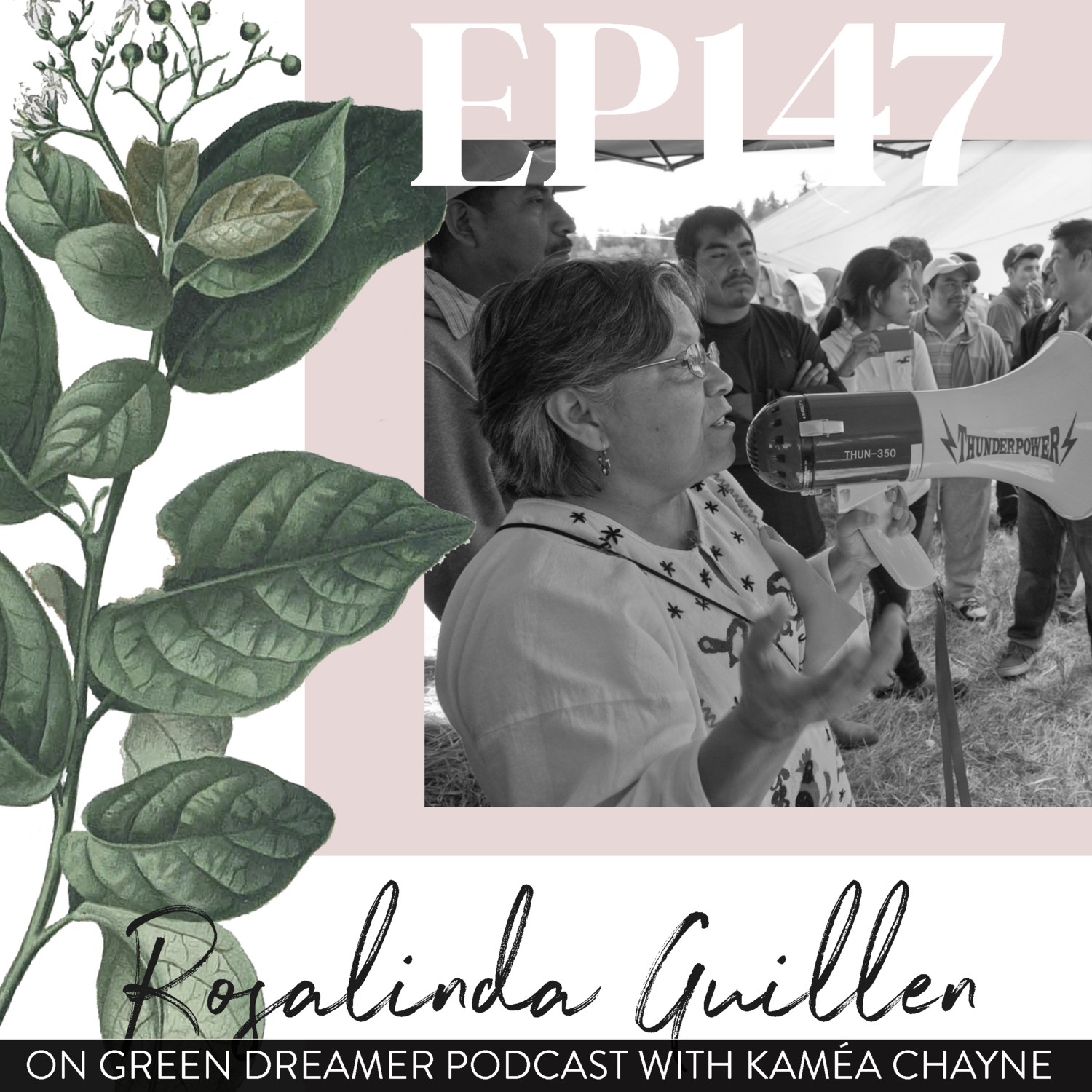Ending settler colonialism to reclaim food justice and sovereignty (interview with rosalinda guillen of community to community)
Rosalinda Guillen is a recognized farm worker and rural justice leader. She's also the Executive Director of Community to Community (C2C), a women-of-color led, grassroots organization redefining power in order to end settler colonialism, capitalism, and patriarchy in their external and internalized forms.
Fueled by inspiration from her parents growing up and fed up with the systemic oppression in our food system, Rosalinda is working to build support for rural communities and sustainable agriculture policies that ensure equity and healthy communities for farm workers.
Just as her father, a lifelong farm laborer, frequently portrayed in his paintings, she envisions and is eager to realize a world where farm workers are respected for their demanding work and the vital role they play in society and in earth stewardship.
On this podcast episode, Rosalinda sheds light on how settler colonialism continues to play out in our food system today; how the lack of work authorization for undocumented farm workers—which make up 48%-70% (or more) of our total number of farm workers in the U.S.—impacts labor standards; how food justice is related to immigration issues; and more.
To start, get a glimpse below into the conversation between Rosalinda and Green Dreamer Podcast's host, Kaméa Chayne.
“Everything that we call our food system comes from a settler colonialism construct.”
If you feel inspired by this episode, please consider donating a gift of support of any amount today!
This is a conversation on Green Dreamer with Kamea Chayne, a podcast exploring environmental regeneration and intersectional sustainability from ideas to life. The preview highlighted has been edited for clarity. Subscribe to Green Dreamer on iTunes, Spotify, Stitcher, or any podcast app to stay informed and updated on our latest episodes.
On aligning our values with how we spend our money:
"Everybody complains: 'Oh my gosh, I would eat organic only if it were just priced lower—I can't afford it.'
But, yes you can if you look at your budget, what you're spending it on, and what you value.
If you value your health, protecting mother earth, and respecting other people's rights, then you should be spending more for your food. I believe half of what we spend our life doing is producing food and eating it."
On maintaining humanity in our food production:
"Without hand labor—the human hand working the land and growing the food we need—our food system will go through another total transformation of what food is.
The agriculture industry, on the big level, is looking to mechanize as much of the food production as they can. But there's just no way to get a robot to pick a raspberry or a strawberry the way a human can do it."
On how settler colonialism persists in our food industry:
"Everything that we call our food system comes from a settler colonialism construct: the way our food system is controlled by corporations, how these huge corporations are led by mostly white males, and if there are any women, they're not people of color.
Our food system has been built to allow the privileged to have what they want, when they want it, and how they want it."
Rosalinda’s final words of wisdom:
"Eat organic. Don't forget about farm workers. And, what you eat now will make a huge difference in how well you will live the rest of your life."

